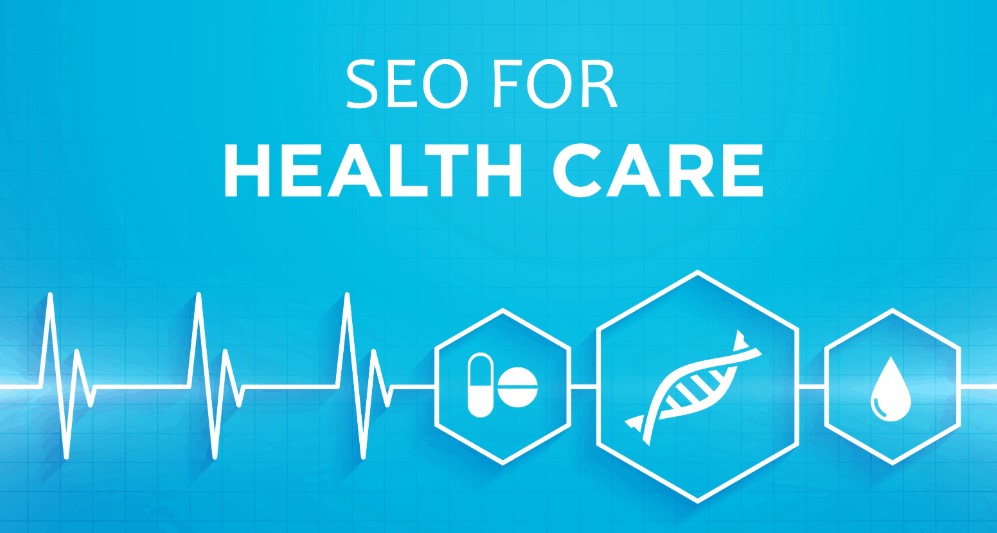Are you a healthcare professional struggling to increase your online visibility and attract more patients? Search Engine Optimization (SEO) can help. In this comprehensive guide, we will explain everything you need to know about SEO for healthcare professionals, including why it’s important, how to optimize your website, and tips for creating engaging content that attracts and retains patients.
Table of Contents
- Why SEO is essential for healthcare professionals
- Understanding SEO: The basics you need to know
- Keyword Research: Finding the right keywords for your healthcare website
- On-Page Optimization: How to optimize your website for search engines
- Off-Page Optimization: Building your online authority
- Local SEO: Attracting patients in your local area
- Mobile Optimization: The importance of mobile-friendly websites
- Content Marketing: Engaging your audience with valuable content
- FAQs
- Conclusion
Why SEO is essential for healthcare professionals
With more and more people turning to the internet to find healthcare providers, it’s essential for healthcare professionals to have a strong online presence. However, simply having a website isn’t enough. You need to ensure that your website is easily discoverable by potential patients.
This is where SEO comes in. SEO is the process of optimizing your website to rank higher in search engine results pages (SERPs). By improving your website’s visibility, you can attract more traffic, generate more leads, and ultimately acquire more patients.
Understanding SEO: The basics you need to know
Before you can start optimizing your website, it’s important to understand the basics of SEO. In simple terms, search engines like Google use complex algorithms to determine which websites should rank higher in SERPs. While the exact algorithms are a closely guarded secret, there are some key factors that are known to influence rankings:
- Relevance: Does your website provide the information that searchers are looking for?
- Authority: Is your website considered a reliable source of information within your industry?
- User Experience: Is your website easy to use and navigate?
Keyword Research: Finding the right keywords for your healthcare website
Keyword research is the process of identifying the keywords and phrases that people are using to search for healthcare services like yours. By targeting these keywords, you can optimize your website’s content to rank higher in search results.
To conduct keyword research, you can use tools like Google Keyword Planner, SEMrush, or Ahrefs. These tools allow you to see how many people are searching for specific keywords and how difficult it is to rank for them.
When conducting keyword research, it’s important to focus on keywords that are relevant to your services and have a high search volume. You should also pay attention to the intent behind the keywords. For example, are people searching for information or are they looking for a healthcare provider?

On-Page Optimization: How to optimize your website for search engines
On-page optimization refers to the process of optimizing individual web pages to rank higher in SERPs. Here are some key elements to focus on:
Title tags and meta descriptions
Title tags and meta descriptions are the snippets of text that appear in search results. They provide a brief summary of what a page is about and can influence whether someone clicks through to your website.
When optimizing your title tags and meta descriptions, it’s important to include your target keywords and make them compelling to entice users to click
Header tags
Header tags (H1, H2, H3, etc.) are used to structure the content on your page. Search engines use these tags to understand the hierarchy of your content and determine which sections are the most important.
When optimizing your header tags, it’s important to use descriptive and keyword-rich headings. Your main heading (H1) should clearly convey the main topic of the page, while subheadings (H2, H3, etc.) can be used to break the content into sections.
Content optimization
Content optimization involves ensuring that your website’s content is relevant, informative, and well-organized. Here are some key elements to focus on:
- Use target keywords throughout the content, but don’t overdo it.
- Write content that is easy to read and understand.
- Break up the content into short paragraphs and use bullet points and numbered lists where appropriate.
- Include images and other multimedia to make the content more engaging.
Internal linking
Internal linking involves linking from one page on your website to another. This helps search engines understand the structure of your website and can also help users navigate to related content.
When internal linking, it’s important to use descriptive anchor text (the clickable text that contains the link) and link to relevant pages. You should also avoid overusing internal links, as this can be seen as spammy by search engines.
Off-Page Optimization: Building your online authority
Off-page optimization refers to the process of building your website’s authority and credibility through external factors. Here are some key elements to focus on:
Backlinks
Backlinks are links from other websites that point to your website. They are a key factor in determining your website’s authority and can have a significant impact on your search engine rankings.
When building backlinks, it’s important to focus on quality over quantity. You should aim to get backlinks from authoritative websites within your industry, as these will carry more weight with search engines.
Social media marketing
Social media can be a powerful tool for building your online presence and attracting new patients. By sharing valuable content and engaging with your followers, you can build a loyal fan base and drive more traffic to your website.
When using social media, it’s important to choose the platforms that are most relevant to your audience and post consistently. You should also use hashtags to increase the visibility of your content and engage with your followers by responding to comments and messages.
Local SEO: Attracting patients in your local area
If you are a healthcare professional with a physical location, local SEO can help you attract patients in your local area. Here are some key elements to focus on:
- Create a Google My Business profile and optimize it with your business information, hours of operation, and reviews.
- Include your address, phone number, and other contact information on your website.
- Use location-specific keywords in your content and meta data.
- Encourage patients to leave reviews on Google and other local directories.
Mobile Optimization: The importance of mobile-friendly websites
With more and more people accessing the internet on their mobile devices, it’s essential for healthcare professionals to have a mobile-friendly website. Here are some key elements to focus on:
- Use a responsive design that adapts to different screen sizes.
- Ensure that your website loads quickly on mobile devices.
- Use large, easy-to-read fonts and buttons.
- Avoid using pop-ups and other features that can be difficult to use on mobile devices.
Content Marketing: Engaging your audience with valuable content
Content marketing involves creating and sharing valuable content that attracts and retains patients. Here are some key elements to focus on:
Blogging
Blogging is a great way to share your expertise with your audience and attract new patients to your website. When blogging, it’s important to focus on topics that are relevant to your audience and use keyword-rich titles and meta descriptions to optimize your content for search engines.
Video marketing
Video marketing can be a powerful tool for engaging your audience and showcasing your expertise. You can create videos that answer common patient questions, provide tutorials, or highlight your services.
When creating videos, it’s important to keep them short and engaging. You should also optimize your video titles and descriptions with relevant keywords.
Email marketing
Email marketing can be a great way to stay in touch with your patients and keep them informed about your services. You can send newsletters, promotional emails, or reminders for appointments.
When using email marketing, it’s important to focus on providing value to your patients. You should also use catchy subject lines and clear calls-to-action to increase engagement.

FAQs
What is SEO for healthcare professionals?
SEO (search engine optimization) for healthcare professionals involves optimizing your website and online presence to attract more patients and improve your search engine rankings.
Why is SEO important for healthcare professionals?
SEO is important for healthcare professionals because it helps them attract more patients, establish their online authority, and grow their practices.
What are some key elements of SEO for healthcare professionals?
Some key elements of SEO for healthcare professionals include keyword research, content optimization, backlink building, social media marketing, and local SEO.
How can healthcare professionals improve their search engine rankings?
Healthcare professionals can improve their search engine rankings by optimizing their website and online presence for search engines, building their online authority, and engaging their audience with valuable content.
What is content marketing and how can healthcare professionals use it?
Content marketing involves creating and sharing valuable content that attracts and retains patients. Healthcare professionals can use content marketing to showcase their expertise, answer common patient questions, and attract new patients to their practice.
Conclusion
In today’s digital age, SEO is essential for health professionals who want to attract new patients and grow their practices. By optimizing your website for search engines, building your online authority, and engaging your audience with valuable content, you can establish yourself as a trusted expert in your field and attract more patients to your practice.





